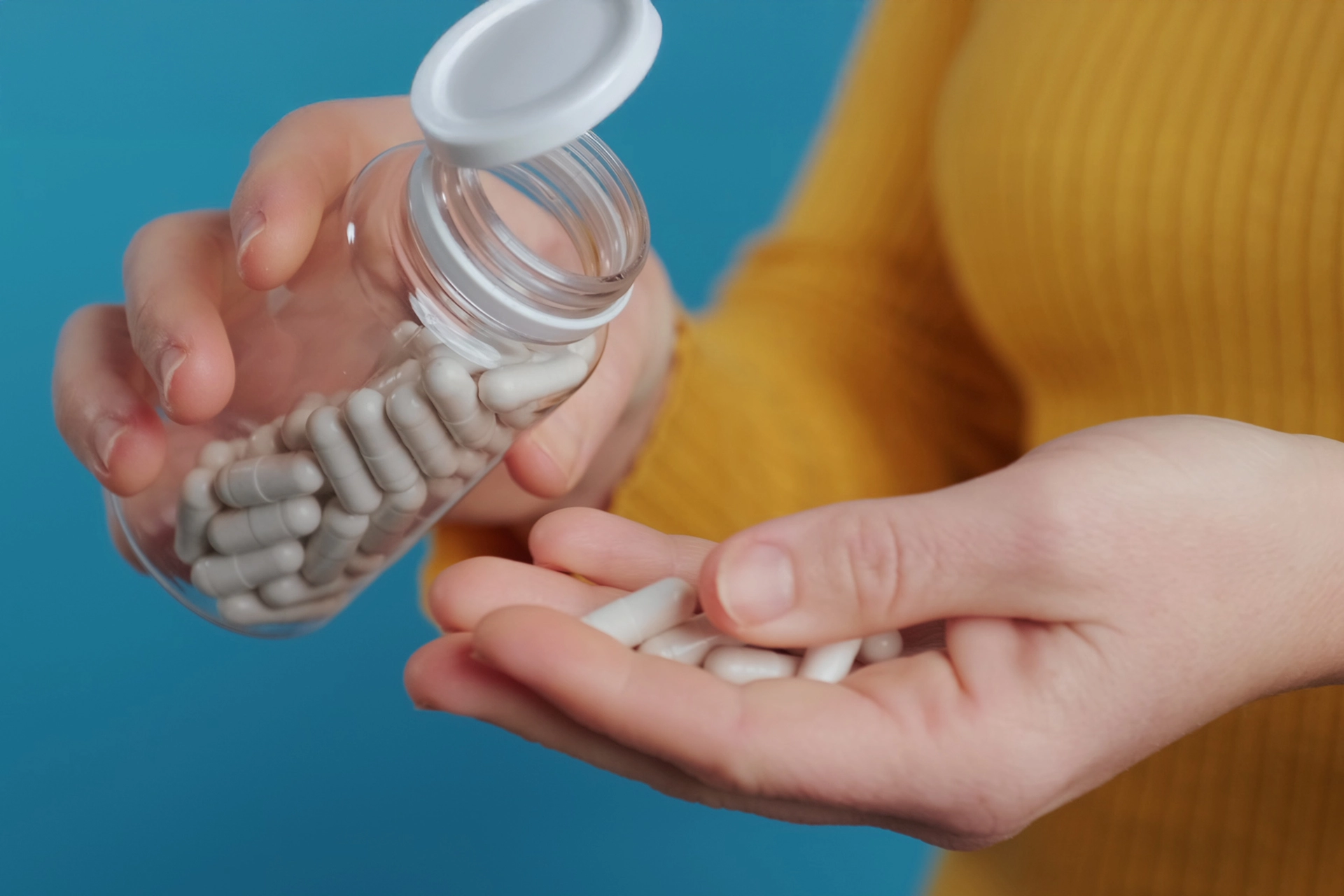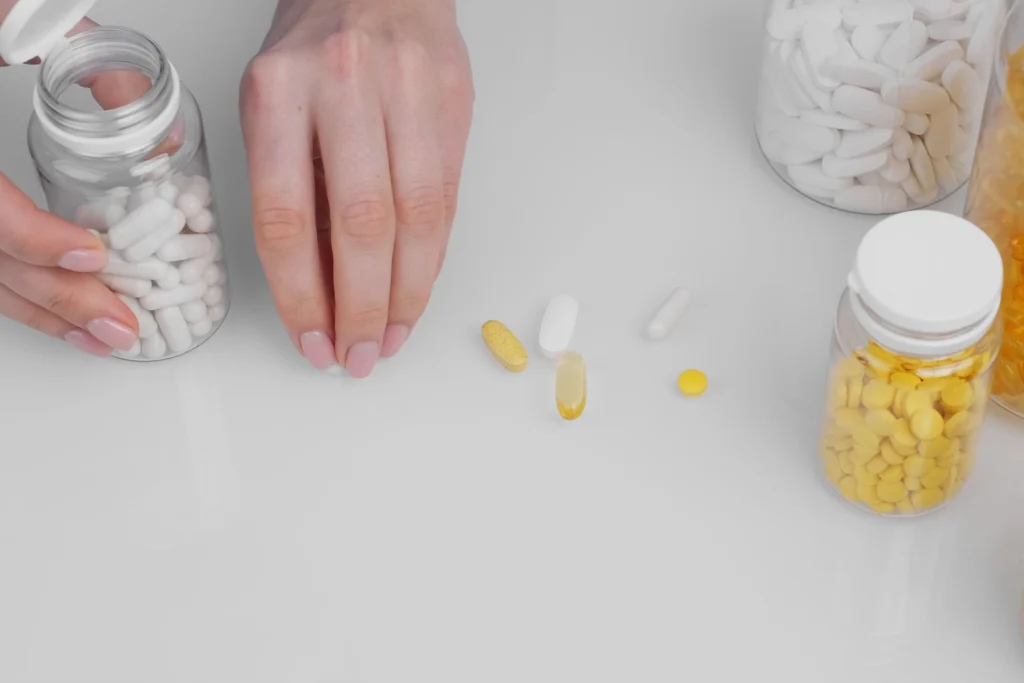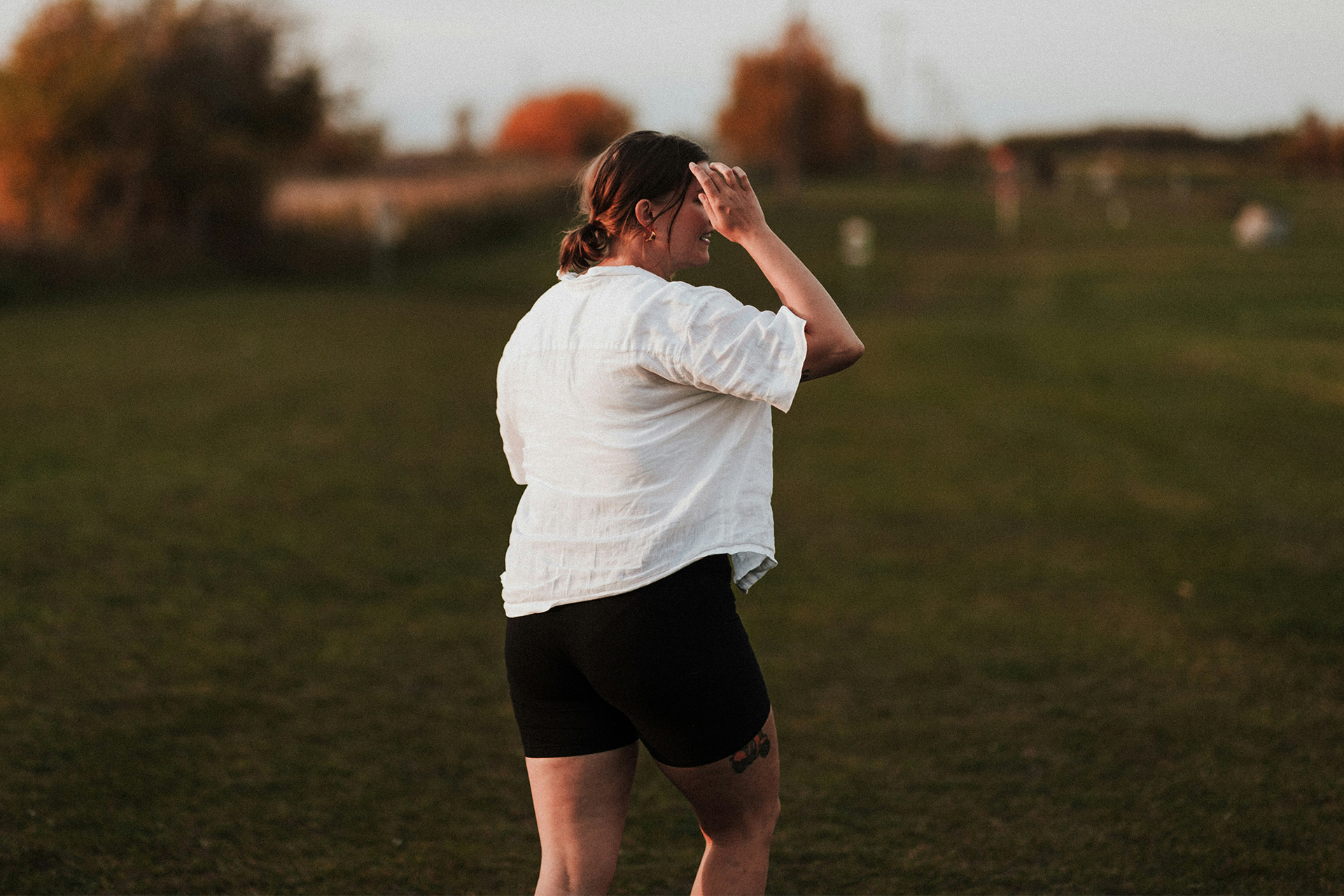Do You Really Have Low Iron? The Truth About Ferritin & Iron Overload

In This Article, You’ll Learn:
✅ Why “low ferritin” doesn’t always mean you need iron supplements
✅ The connection between ferritin, hormones, and iron metabolism
✅ How to support your iron levels naturally without risking overload
Is Your Ferritin Really Too Low? The Hidden Truth About Iron Levels
Feeling exhausted? Experiencing hair loss? Many women assume that low energy and fatigue mean they must be iron deficient. And when a blood test reveals low ferritin, the first recommendation is often to take iron supplements.

But what if that’s not the best solution?
There’s a common misunderstanding about ferritin and iron, and many women are supplementing iron unnecessarily—sometimes even causing more harm than good.
So before you start loading up on iron, let’s break down what ferritin really is, why it matters, and how to support your iron levels naturally—without unwanted side effects.
What Is Ferritin? Understanding Your Body’s Iron Storage
Ferritin is often called “the storage form of iron.” It holds excess iron in the body, releasing it when needed. Many doctors focus on raising ferritin levels, assuming that higher ferritin = better iron status.
But here’s the problem: Ferritin is not the best indicator of iron deficiency. It can be low due to other reasons—and sometimes, higher ferritin is a sign of inflammation rather than good iron stores.
A ferritin level below 15 ng/mL may indicate true iron deficiency, but levels between 20-50 ng/mL are often normal.
This is why checking only ferritin levels without looking at other markers (like hemoglobin, transferrin saturation, and total iron binding capacity) can lead to misdiagnosis.
The Myth of “Low Ferritin” and Why More Iron Isn’t Always the Answer
Many women are told they need to have ferritin levels above 50 ng/mL—or even over 100 ng/mL—to have healthy hair, energy, and hormonal balance. But that’s not entirely true.
The reality? A ferritin level between 20-50 ng/mL is often perfectly healthy—especially if hemoglobin and other iron markers are normal.
💡 Remember: Taking iron supplements when you don’t actually need them can lead to iron overload, which can cause oxidative stress, gut issues, and even hormonal imbalances.
Hormones, Ferritin & Iron Absorption: The Missing Link
We’ve established that ferritin alone doesn’t tell the full story of your iron status. But what if your iron markers seem off despite a balanced diet? This is where your hormones come into play.
How Hormones Affect Iron Metabolism:
🔹 Estrogen affects iron absorption – Higher estrogen levels can increase iron retention, while low estrogen (e.g., postmenopausal women) may lead to lower iron levels.
🔹 Thyroid hormones impact ferritin storage – Hypothyroidism is linked to low ferritin, but simply increasing iron intake won’t fix the root cause.
🔹 Progesterone influences blood circulation – Low progesterone can reduce oxygen transport, making fatigue worse even if iron levels are normal.
If your iron markers are off, it’s essential to look at your overall hormonal health instead of just increasing iron intake.
Signs That Low Ferritin Might NOT Be the Real Issue
If you have low ferritin but normal hemoglobin and red blood cell count, your fatigue or hair loss might not be related to iron deficiency at all.
Instead, the real problem could be:
✔ Poor iron recycling – Your body naturally recycles iron daily from old red blood cells. If this process is impaired, supplementing iron won’t fix the root issue.
✔ Inflammation & gut health problems – Chronic inflammation or gut imbalances block iron absorption, making supplementation ineffective.
✔ Low copper and vitamin A – These nutrients are essential for proper iron metabolism, yet most people overlook them.
✔ Excessive iron storage in tissues – Iron overload can mimic iron deficiency symptoms, leading to misdiagnosis.
Iron deficiency isn’t always about low intake—your body naturally recycles around 24 mg of iron daily. If this process isn’t working properly, taking more iron won’t fix the problem. Learn more about how iron metabolism and recycling really work. (link do artykułu How Iron Metabolism Really Works)
Iron Overload Symptoms That Mimic Deficiency
Many women assume that if they’re tired and losing hair, they must need more iron—but in some cases, the opposite is true.
Common signs of iron overload that are often mistaken for deficiency:
- Constant fatigue – Iron overload disrupts mitochondria, reducing energy production.
- Brain fog – Excess iron contributes to oxidative stress in the brain.
- Hair thinning – High iron damages hair follicles.
- Bloating & constipation – Iron buildup affects gut function.
How to Support Your Iron Levels Naturally (Without Overloading Your Body)
If you’ve been diagnosed with low ferritin or iron deficiency here’s what you should focus on instead:
1. Support Your Body’s Natural Iron Recycling
Your body recycles 24 mg of iron every day – far more than the 1-2 mg you absorb from food! If your iron levels are low, improving recycling is more effective than taking supplements.
✅ How to do this naturally:
- Increase copper-rich foods like beef liver, shellfish, and dark leafy greens.
- Eat real vitamin A sources (not beta-carotene!) from eggs, butter, and cod liver oil.
- Prioritize complete protein – iron transport depends on proteins, and your body needs amino acids (from high-quality protein) to build them effectively.
- Improve gut health to support absorption – because no amount of iron will help if your gut can’t absorb it properly.
2. Be Careful with Iron Supplements—More Is Not Always Better
Taking iron supplements when you don’t actually need them can do more harm than good. Excess iron doesn’t just cause temporary discomfort—it can contribute to long-term health issues by disrupting your body’s natural balance.
Potential Risks of Unnecessary Iron Supplementation:
❌ Oxidative stress – Excess iron promotes free radical damage, accelerating aging and increasing inflammation.
❌ Digestive discomfort – Iron supplements can lead to bloating, constipation, and gut irritation.
❌ Hormonal imbalances – Too much iron can interfere with thyroid function and disrupt estrogen metabolism.
💡 Key Insight: If your iron levels are already sufficient, supplementing won’t boost your energy—it may actually make fatigue worse by increasing inflammation and oxidative stress.

3. Focus on Copper & Ceruloplasmin, Not Just Iron Intake
Most women are told to boost iron when dealing with low ferritin – but the real issue might be copper deficiency and impaired iron recycling.
🔹 Your body recycles up to 24 mg of iron daily and needs only about 1–2 mg from food.
🔹 Ceruloplasmin, a copper-dependent protein, plays a central role in iron transport and recycling.
🔹 When copper is deficient, iron gets stuck in tissues – contributing to inflammation, oxidative stress, and hormonal issues.
💡 What disrupts copper balance?
✔️ Synthetic vitamin C (ascorbic acid) taken in high doses.
✔️ Excess zinc or calcium supplementation.
✔️ Poor intake of real vitamin A (retinol), found in liver, egg yolks, and cod liver oil.
✔️ Industrial food practices that deplete copper in soil and crops.
✅ How to support copper metabolism:
- Focus on whole food sources of copper: beef liver, oysters, dark leafy greens.
- Choose natural vitamin C sources like fruits instead of synthetic supplements.
- Ensure adequate magnesium and protein intake—essential for ceruloplasmin production.
What You Need to Remember About Ferritin & Iron
🔹 Low ferritin does NOT always mean iron deficiency—other markers like hemoglobin and transferrin saturation matter.
🔹 Too much iron can be harmful, leading to oxidative stress and gut issues.
🔹 Your body naturally recycles iron—supporting this process is better than overloading with supplements.
🔹 Focus on real, whole-food sources of iron and key cofactors like copper, vitamin A, complete protein and gut health.
Still Confused About Your Iron Levels? Let’s Figure It Out Together!
Most women don’t need more iron—they need a better strategy. If you’re feeling lost about your iron markers, let’s analyze them together. With a personalized approach, you can optimize your energy, hair growth, and hormonal balance the right way—without unnecessary supplements



